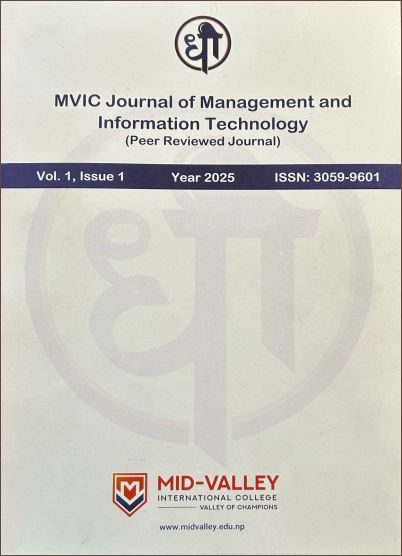Impact of Working Hours, Work Overload and Role Ambiguity on Perceived Workplace Stress among Employees in Nepalese Commercial Banks
DOI:
https://doi.org/10.3126/mvicjmit.v1i1.77319Keywords:
Long working hours, Role ambiguity, Work overload, Job stressAbstract
This study examines the effects of work overload, long working hours, and role ambiguity on job stress within the framework of the Job Demands-Resources (JD-R) Model. The Job Demands- Resources (JD-R) model is a comprehensive framework used to understand the relationship between job characteristics and employee well-being, particularly in the context of job stress. In this study, a quantitative research approach has been used to investigate the causal relationships between the independent and dependent variables. In this study, a cross-sectional survey has been conducted with a structured questionnaire among N=280 employees of both government-owned and private Nepalese commercial banks. Based on data analysis, this study finds that there is a positive and significant relationship between work overload, long working hours, and role ambiguity on the perceived job stress among employees working in Nepalese commercial banks. More importantly, the findings of the study provide strong evidence for the JD-R model, where job demands and the lack of job resources are primarily related to a sense of stress among employees in commercial banks. Hence, the study recommends commercial banks to systematically assess job demands and enhance job resources while promoting a healthy work-life balance and maintaining open lines of communication with employees. Nepalese commercial banks can effectively manage the equilibrium between what is expected from their workforce and what support is provided.




